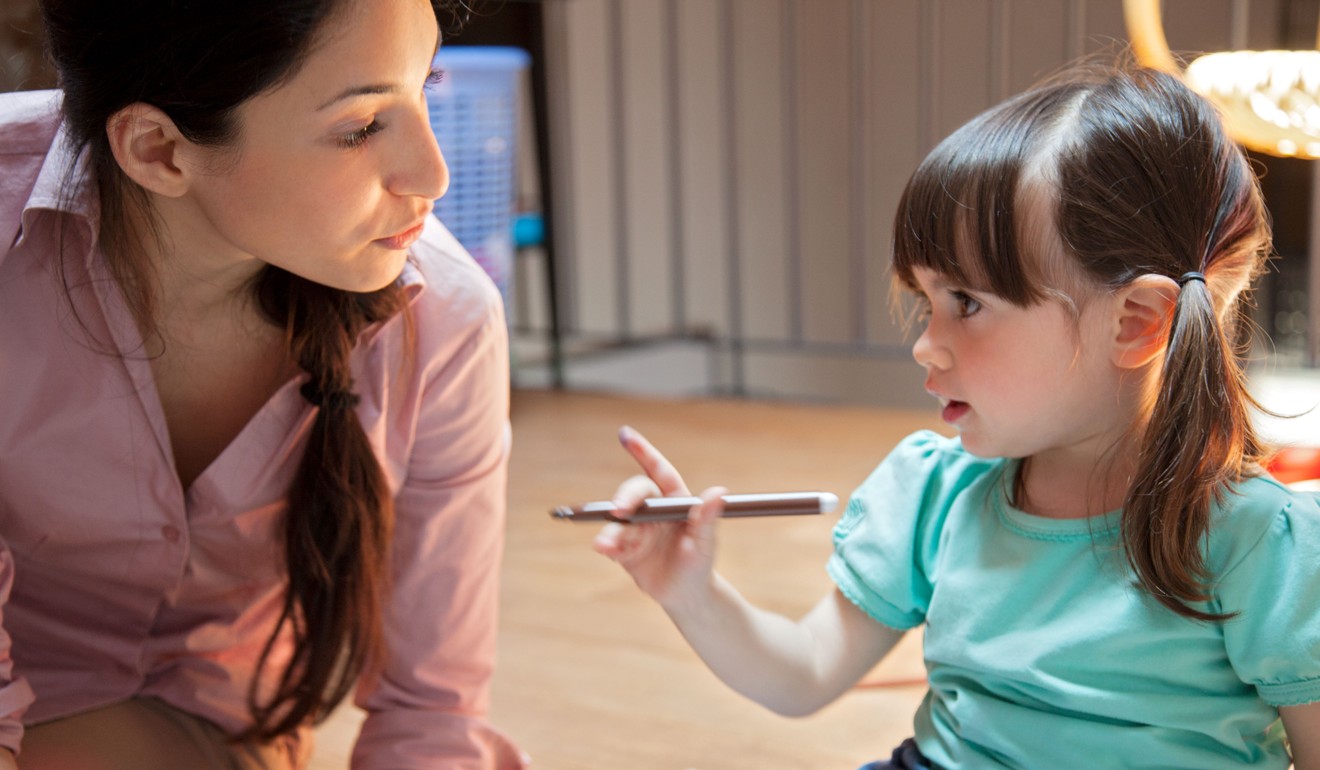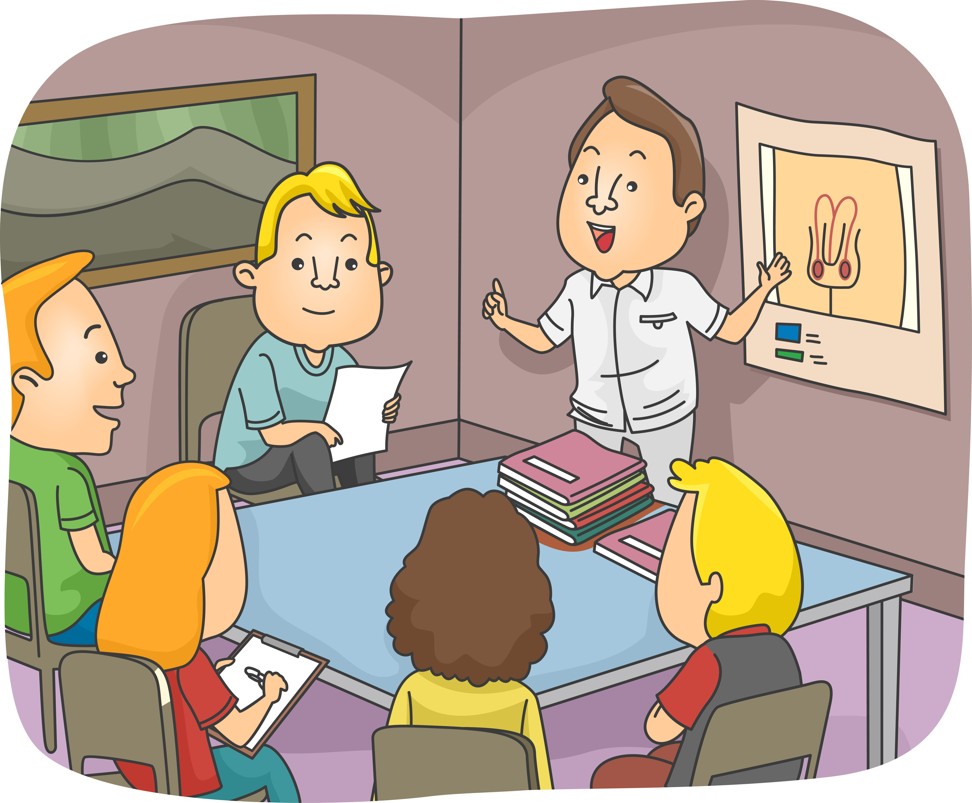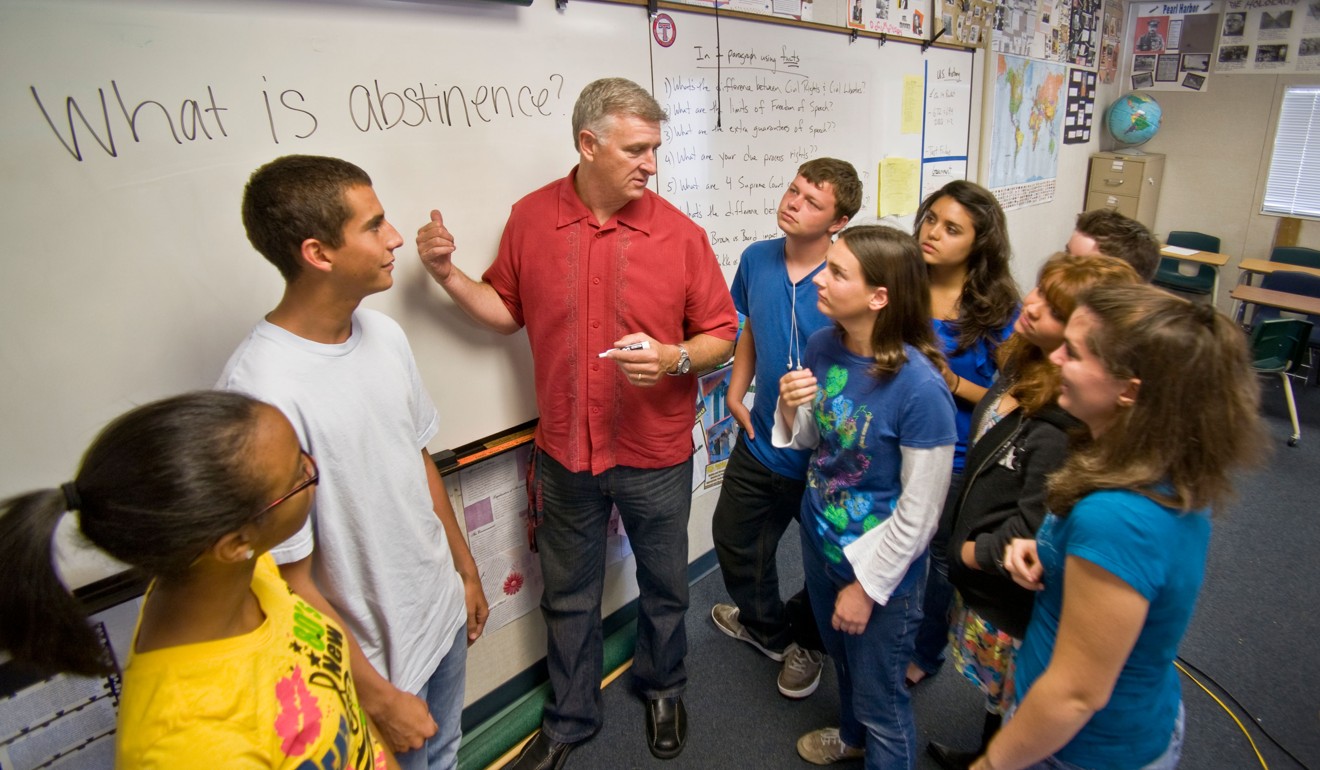
How to teach kids about sex: parents’ guide to talking with children and how Hong Kong schools are dropping the ball
With so much misinformation out there, parents need to provide proper sex education to their children. But when cultural and social factors get in the way, fostering a healthy attitude that carries on into adulthood can be a challenge
My daughter asked her first question about sex when she was about 11 years old. She made no bones about her curiosity and blurted out, “What’s an orgasm?”
I was surprised, but not shocked. I respected her directness so I gave an answer in an age-appropriate way. I told her to think about eating her favourite food, which was chocolate, and then imagine having the same wonderful sensation all over herself. Half satisfied with my answer, she said, “Oh, that’s messy!” before returning to watching a cartoon.
Why don’t Chinese couples show affection or say ‘I love you’?
Answering our children’s questions about sex is a responsibility bigger than most of us think, but many parents dread that first moment. Like most parents, I felt slightly tongue-tied at first, but the awkwardness gradually faded when I got into the habit of giving my daughter regular talks about puberty and various topics on sex, including how it’s “done” and pornography.
The subject of sex should never be avoided with children, especially when there is so much information and misinformation out there. Parents have a responsibility to provide proper guidance to their children. By talking about sex with their kids they can help foster a healthy attitude and feelings about the subject.

In Hong Kong, we often hear complaints about the lack of sex education at school and at home. But is there really a problem? The answer is a resounding “yes”, according to Bau Chung Sze-wan, sex educator and registered social worker.
“I think the main problems regarding sexuality education in the Hong Kong education system is the lack of quantity and quality, as well as finding the right approach and correct way to deliver the message,” she says.

Chung says most schools do have sex education sessions, but they are limited to one or two per academic year. This is not enough to help young students fully understand the subject.
Another problem is the way the message is being delivered.
“In a mixed-gender sex education session at school, it’s quite hard for students to ask teachers questions related to sexuality. They need to be in an environment where they won’t feel judged and can feel safe to ask anything openly. It would be better to put students in smaller, same-sex groups for such discussions,” Chung suggests.

There are a variety of ways schools can approach the topic.
“Most schools in Hong Kong prefer to adopt an intimidating or abstinence-favouring approach to sex education. But this may not be enough to satisfy the needs and curiosity of most young people, since nowadays many of them have access to an enormous amount of information,” Chung says.
She says the more schools and parents try to hide the truth about sex, the more this will reinforce the stigma and negativity attached to it. They will also end up neglecting some of the most important concepts, including safe sex practices, contraception, sexual consent and power issues in relationships.
There are different ‘secret groups’ on Facebook where young people post anonymous questions and thoughts concerning their lives
A major part of the problem is that Hong Kong teachers have no proper training in this area, which affects the quality of sex education.
“There is no sexuality-related information included in teachers’ training, which means there is a lack of support in equipping teachers with the right knowledge and evidence-based data,” Chung says. “And because teachers are so overwhelmed and focused on academic achievements and administration, the school environment doesn’t make room for effective sex education to happen.”
The situation is just as dire in homes because most Chinese parents also grew up without proper sex education, so they do not know how to talk about sex with their kids. As a result, many young people turn to the internet for help.
“There are different ‘secret groups’ on Facebook where young people post anonymous questions and thoughts concerning their lives,” Chung says. “There is a page called ‘Top schools’ secrets’, of which most members are secondary students who want to discuss intimate issues.”

Chung warns that the lack of sex education at home can actually harm all the family. She has encountered cases in which young children groped their schoolmates’ breasts out of curiosity or were caught masturbating by their parents, and of teenagers who say they learned about sex from watching pornographic videos.
“Most parents don’t know how to talk about sex with their children, so they try to prevent them from coming into contact with the sensitive topic. Their kids’ sexual ignorance will then perpetuate into adulthood, which is very dangerous,” she warns.
The core message should be that sex is part of a relationship, but then stress the importance of technical things like how to wear a condom
But sex education is more than just learning about sexual intercourse – it’s also about motivating young people to think, because inspiring them is far more important than technical teaching, according to Dr Paul Wong Wai-ching, associate professor in the department of social work and social administration at the University of Hong Kong.
“Sex education is very much needed, especially for young students, because sex-related information is available everywhere [online]. If the government wishes to provide accurate information about sex education to children and young people, delivering it through apps and/or websites could be a good option because they are less lecture-based and hence more suitable to young audiences,” Wong suggests.
“The core message should be that sex is part of a relationship, but then stress the importance of technical things like how to wear a condom, how to deal with relationships – especially with people met over the internet – and how to reject unwanted sexual propositions. These lessons must be taught in a meaningful way, be it in school or at home.”

Chung says sex education is ultimately about learning about ourselves, our relationships with others, and about respect and communication.
“Young people spend most of their time at school, so these are the best environments for nurturing a positive sense of self, including a sense of one’s sexual self,” she explains.
“Compulsory learning about positive aspects of sex and relationships at school can facilitate young people having a positive attitude towards themselves and promote healthier interpersonal relationships. It also helps them know more about sexual abuse. Most importantly, this kind of positive atmosphere can encourage young people to share their problems and seek help when they need to.”
Love – what’s money got to do with it? Quite a lot, actually
Some sexologists argue that sex education should start with infants. This is because hugging and touching occurs between infants and trusted family members, but infants need to understand when such actions are inappropriate between certain people.
“I think two-year-olds can start learning about sex,” Chung says. “For toddlers and preschool children, they already have the sense to differentiate between boys and girls. It’s also the time when ‘sex play’ and genital touching become more explicit. This is also the period when they have lots of questions to ask, so naturally this invites lots of suitable ‘teaching moments’.”
First steps to teaching children about sex
Chung gives advice on how parents can approach the subject with their kids.
1. With older children, use correct names to refer to genitals
2. Teach them how to clean their genitals properly
3. For young children, parents can co-create unique names for genitals
4. Talk about how life begins
5. Tell the truth about where babies come from; use dolls and stories as tools
6. Respond positively to “normal” sexual behaviour (such as liking someone or wanting to kiss them); teach them about this in a safe and private space
7. Teach your children about boundaries and consent
8. Avoid gender-stereotypical education
Luisa Tam is a senior editor at the Post

